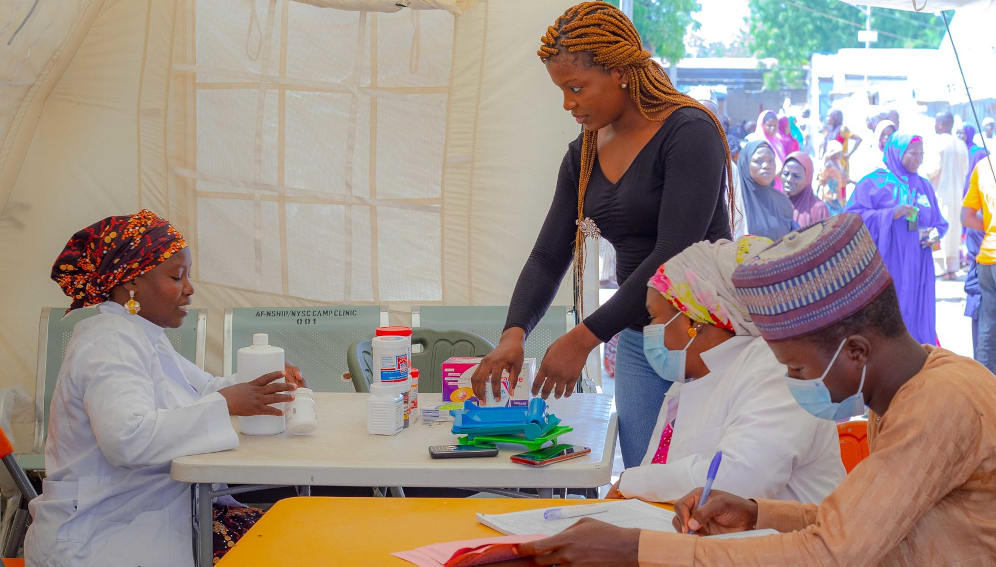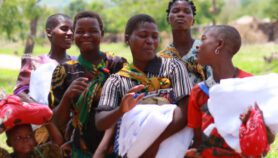02/04/24
Nigeria failing to meet healthcare funding commitments

By: Deborah Samuel
Send to a friend
The details you provide on this page will not be used to send unsolicited email, and will not be sold to a 3rd party. See privacy policy.
[LAGOS] Twenty-three years after the famous Abuja declaration to improve health services in Africa, Nigeria has yet to meet its commitment to ensure 15 per cent of its budget goes to the sector.
At the 2001 African summit on HIV/AIDS, tuberculosis and other related infectious diseases held in the Nigerian capital, regional leaders pondered ways to control the spread of these diseases through stronger policies and interventions across the continent.
Their resulting pledge to spend at least 15 per cent of annual national budgets on the health sector, known as the Abuja Declaration, was hailed as an historic milestone.
“We need to seriously fund the health sector so that Nigeria will be better for us. Poor funding in the health sector will create a negative impact on health outcomes.”
Uche Ojinmah, president of the Nigerian Medical Association
However, more than two decades later, the Nigerian government is not even close to fulfilling this promise, with no administration committing more than seven per cent of its annual budget to health.
While many countries across Sub-Saharan Africa – including those in the Southern African Development Community – are still struggling to meet the target, a few others including Rwanda, South Africa, and Botswana are either meeting or within reach of the goal.
Uche Ojinmah, president of the Nigerian Medical Association, says there is a critical need for adequate funding to sustain a functional health sector and curb the alarming migration of health workers.
“We need to seriously fund the health sector so that Nigeria will be better for us,” he told SciDev.Net.
“Poor funding in the health sector will create a negative impact on health outcomes.”
According to Budgit, a Nigerian civic organisation promoting transparency in government spending, in 2021, only 4.5 per cent of Nigeria’s budget, or N605.6billion (US$1.6 billion), was allocated to health out of a total of N13.6 trillion.
This increased marginally in 2022, with 5 per cent, or N821.5 billion, allocated for healthcare out of N16.4 trillion.
In 2023, Budgit says, out of the N21.8 trillion total budget, N1.2 trillion (5.3 per cent) was allocated to the health sector.
Similarly, in the 2024 budget termed ‘Budget of Renewed Hope’, the allocation to health increased to N1.5 trillion (5.6 per cent) out of a total of N28.8 trillion, amid economic challenges and rising inflation.
South Africa and Rwanda now spend at least 15 per cent of their budget on health.
Health worker crisis
At the same time, Nigeria – which is Africa’s biggest by population size – is facing a huge shortfall of medical staff, with many trained professionals leaving to find work elsewhere.
According to the Nigerian Association of Nurses and Midwives, the health sector has one nurse to about 1,160 patients, while the OECD average is one nurse to 114 patients.
Ojinmah says the shortage of personnel seriously affects the delivery of health services.
Ipalibo Banigo, a Nigerian lawmaker and chair of the senate committee on health, says the current administration has a “definite policy towards increasing funding”.
She cites initiatives such as a recently activated fund to increase health insurance coverage for vulnerable groups, such as children, the elderly and pregnant women. The Vulnerable Group Fund is part of Nigeria’s National Health Act, in place since 2004.
“We are in an era of renewed hope and that is factual because you can see that this year there is an increase in what is allocated to health,” Banigo told SciDev.Net, adding: “It is not where we want it to be, but we will continue to push up.”
However, health workers say this year’s rise in health spending is grossly insufficient and does not amount to a real-terms increase when accounting for the near 30 per cent inflation rate seen in January.
Dele Abdullahi, president of the Nigerian Association of Resident Doctors, said: “Health is capital intensive, in the sense that equipment changes every six months, and you have to maintain the building… It takes money to give you good health care.”
He believes political will is crucial for building a strong health sector.
“We need people that are in tune with current realities to lead every nation,” he added.
Ifeanyi Nsofor, senior vice president for Africa at the Human Health Education and Research Foundation, wants to see the government focus on health insurance to improve healthcare in the country, given the funding shortfalls.
“Health insurance is the way and we need to focus our attention there,” he said.
This piece was produced by SciDev.Net’s Sub-Saharan Africa English desk.













